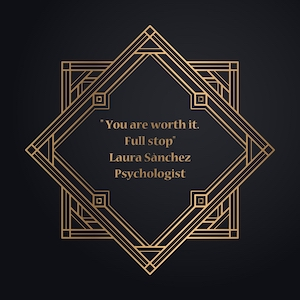Reaching and developing a healthy self-esteem is one of the most complex processes a psychology professional has to deal with. In most cases, self-esteem has been damaged and crushed by personal, professional or family issues. Restoring it is essential to take our life to its best in every aspect. The basic pillar of every relationship, including the very important one with ourselves, is a healthy self-esteem.
I teach my patients how to improve their self-esteem in three simple steps:
-SELF RESPECT: it’s all about being consistent with yourself. It would be good to start being responsible for yourself: for everything you think, for your feelings, and whatever you say and do. You will be respecting yourself only when those aspects are mentally, emotionally and behaviorally consistent. You will be your real self, disregarding others’ opinions or judgments. You are the person totally in charge of yourself, you and no one else, which means others are free to choose how to behave, express or feel. If they turn abusive or treat you bad in any aspect, then setting healthy limits is crucial.
-SELF-ACCEPTANCE: everybody has virtues and weaknesses. The aim is to light up virtue and make them shine, while working hard on weaknesses, in order to be the best version of yourself.
-SELF-VALUATION: valuating yourself implies believing that you can, you know, you are worth it and –most of all- you deserve it. When you assimilate the fact that you deserve a dignified and worthy life in every aspect, your self-esteem will start to heal.
My patients often ask how long does it take to work on self-esteem and heal it. Well, my answer is: it takes a lifetime.
Being true to yourself is a full-time commitment.

